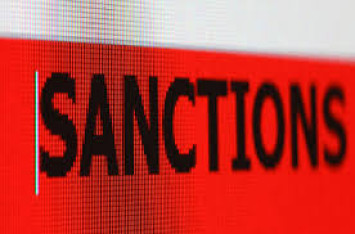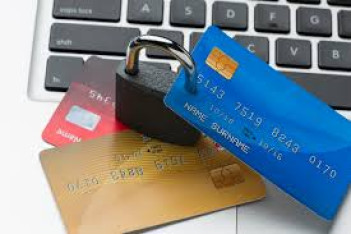When Your Bank Account Is Blocked Due to Sanctions: What to Do?
The blocking of a bank account in the U.S. due to suspected violation of international sanctions is a serious situation that requires immediate legal action. Such blocking may be related to transactions involving sanctioned countries (e.g., Iran), companies, or individuals. Often, clients only learn about the problem when they cannot access their funds, and the bank refers to OFAC (Office of Foreign Assets Control). It is important to remember that when a blocked account is established to hold an entity's frozen assets, the money is not confiscated but kept under restrictions until resolution. Additionally, understanding international sanctions definition and what are global sanctions helps clients realize the scope of their situation.
What Is Included in the Legal Support Service for Account Blocking Due to Sanctions?
Our team provides comprehensive legal assistance, which covers a broad range of actions. Each stage is carefully tailored to ensure compliance with sanctions laws and international rules. Before we begin, we assess the transaction to see if simply processing a transaction involving a foreign country is considered a red flag forOFAC.
- Analysis of the reasons for account blocking and the bank's or OFAC's request
- Preparation of a response to the bank's inquiry, including justification of the legality of fund sources
- Preparation and submission of a request to OFAC for a license or unblocking (unblocking license request)
- Legal support at all stages of correspondence with financial institutions and government agencies
- Recommendations to mitigate risks of future account blocking
These measures help avoid sanctions red flags, ensure that future transactions comply with the requirements of the applicable laws of the country/regionand prevent potential foreign policy sanctions issues.
Why Is It Important to Consult a Lawyer When Your Account Is Blocked Due to Sanctions?
Independent correspondence with the bank or OFAC often leads to delays, rejections, or further restrictions. To avoid mistakes and unnecessary risks, qualified legal assistance is extremely important, as clients cannot independently research this topic in detail and often ask why are sanctions used by the international community and imposes them. An attorney will:
- Assess the legality of the bank's actions
- Ensure proper communication with U.S. government agencies
- Prepare documents in English according to OFAC requirements
- Protect your interests in case of legal appeal
Timely involvement of a lawyer helps reduce the duration of account blocking and avoid financial losses. This is particularly important since in addition to fines willful violators of OFAC regulations may be imprisoned, and awareness and knowledge of potential consequences can only be guaranteed by a proper understanding international sanctions examples.
What Will the Attorney Do?
The role of an attorney is not limited to drafting documents — it extends to strategy and direct negotiations. At each stage, the process is aimed at safeguarding the client’s rights. We also analyze global sanctions policy measures that may affect your case.
- Conduct an initial consultation and request documents regarding the account and transactions
- Perform a legal analysis of the situation and develop an action strategy
- Negotiate with the bank and prepare a document package for OFAC
- Submit a request for a Specific License or apply for asset release
- Monitor the review process and respond to additional regulatory inquiries
By involving experts, you minimize risks and ensure compliance with UN Security Council Resolutions, as well as unilateral sanctions in international law.
Service Terms and Typical Situations
Legal assistance is provided to clients whose accounts have been frozen in the U.S. due to a variety of reasons. Many of them fall under strict international financial sanctions and embargoes may target certain specific countries, companies, enterprises, or individuals. The attorney also evaluates whether a country whose property is blocked by OFAC retains ownership of its assets.
- Transfers or payments to individuals on the SDN sanctions list
- Financial transactions with sanctioned countries (e.g., Iran, Cuba)
- Suspected connections with restricted companies
- Insufficient transparency of fund sources or their purpose
The solution is likewise readily available to non-U.S. residents, consisting of entrepreneur, freelancers, immigrants, and loved ones that send out or get funds from abroad. As an example, while entities and organizations may be sanctioned by OFAC entire countries are not, and in order to reduce threats, it is needed to be educated concerning sanctions or entrust this matter to an attorney that understands diplomatic sanctions.
Consultation and Getting Started
We recommend not delaying. Consulting a lawyer at an early stage helps avoid losing access to funds and reduces reputational risks. Submit a consultation request, and we will review your situation in detail. Our team understands who is responsible for sanctions compliance and can guide you through each regulatory step. Additionally, we provide insights into international sanctions example, explaining how specific restrictions may apply to your transactions, and offer strategies to minimize exposure to global sanctions violations in future operations.
ConclusionSanctions-related account blocking is not only stressful but also legally complex. A lawyer’s role is to analyze your case, protect your interests, and communicate directly with OFAC or banks to achieve unblocking. With professional guidance, clients gain clarity on what are international sanctions and how they affect everyday transactions. Timely consultation helps safeguard your funds and prevent future risks of violating sanctions. High-quality and timely legal support ensures that you can safely navigate the rather complex system of foreign sanctions and regulatory requirements safely.






































